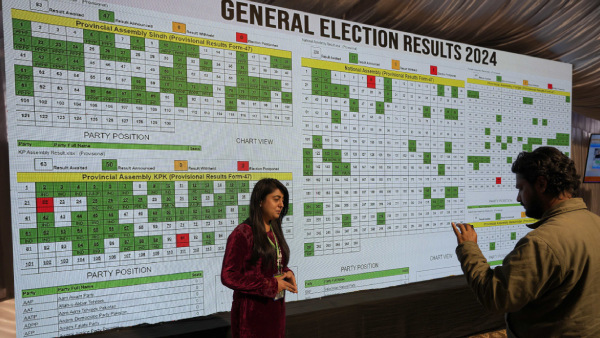As Pakistan geared up for its recent general elections, concerns arose over the spread of disinformation tactics, including the use of advanced technologies like artificial intelligence (AI) and deepfake videos, targeting the country’s vast electorate of 128 million voters.
One notable incident involved an AI-generated video featuring former Prime Minister Imran Khan falsely claiming victory. While Khan had consented to this specific video, other instances included fake videos, particularly deepfakes, portraying PTI-backed candidates announcing election boycotts.
Sadaf Khan, co-founder of Media Matters for Democracy, highlighted the inherent dangers of AI and deepfakes during electoral processes. She stressed that such manipulated videos, especially those featuring influential figures like Khan, have a higher potential to mislead the public, potentially swaying voting decisions based on false premises. This, in turn, raises significant concerns about the integrity of the electoral process and the democratic quality.
Moreover, the government’s decision to restrict internet access during the elections posed additional challenges for media outlets, hindering their efforts to debunk false narratives and report on any irregularities. While the Interior Ministry justified the shutdown on security grounds, critics argued that it impeded access to vital information, such as polling station locations, and hampered prompt reporting on suspected irregularities.
Although the Election Commission of Pakistan did not respond to inquiries, it directed regulatory authorities to enforce codes of conduct for national media. Additionally, civil society groups like the Free and Fair Election Network (FAFEN) emphasized the impact of AI and deepfakes on voters, underscoring the need for effective measures from election management bodies and observer groups to address these challenges.
Reflecting on the elections, journalist Asad Toor suggested that AI-generated videos may have influenced voter turnout in favor of Imran Khan’s candidates, highlighting the evolving role of social media in shaping electoral outcomes.
While AI presents both positive and negative possibilities, experts like Enrico Pontelli stressed the importance of developing effective solutions for detecting AI-generated fake content. However, concerns persist regarding the adequacy of Pakistan’s legal framework in addressing these issues, with calls for stronger measures to combat the misuse of AI for disinformation purposes.
















































